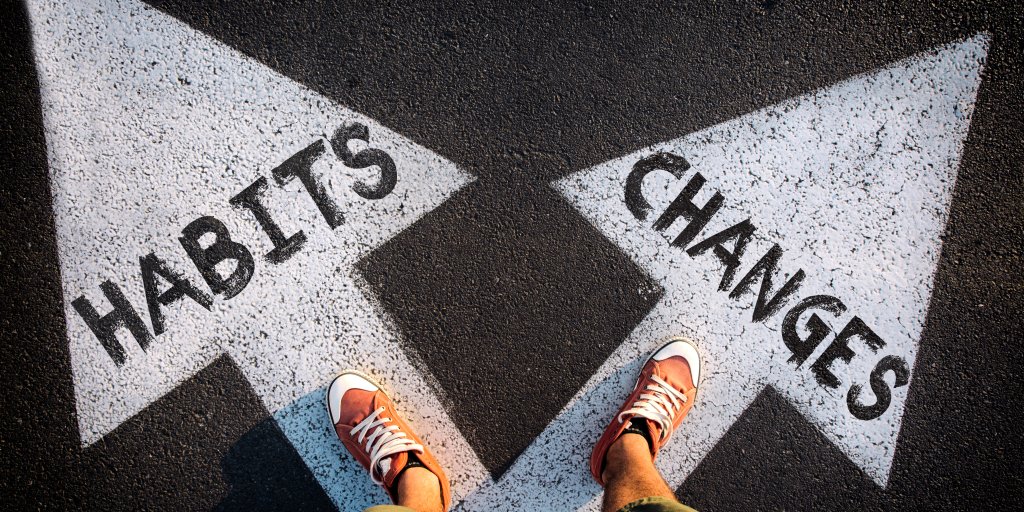Dealing with irresistible forces can be very time consuming and emotionally demanding. Those strong emotions can easily distract you from acting in the ways necessary to turn the irresistible forces into your favor.

When the emotions divert you from pursuing your own or your organization's best interests, you have just experienced a stall (a bad thinking habit that delays improvements).
When you are faced with an incident that is new to you, how do you react?
How
do you react when things don’t go quite like you expected or wanted
them to? When you feel when you have been blamed for something that
wasn’t your fault? How do you react? How do you react when you stop at
the junction and the car behind doesn’t and drives into you? How do you
react when your child gives you his/her school report which is not as
good as you expected? Do you look for the reactions from others before
you do anything? Do you gauge your success from the reactions of others?
Our natural human instinct is to react to external stimuli—what would it take for you to convert your reactions into responses?
There is a huge difference between a reaction and a response. Suppose someone walks up and punches you in the arm; your reaction is to punch them back. But if you pause, even for a few moments, the incredible computer that is your brain can take stock of the situation. What is your history with this person? Are they joking or serious? Is there a flight option? And within a few seconds, you can craft a thoughtful response.
When you react, you get what you get. When you respond, you are more likely to get what you want.
Human response to disasters has been recorded throughout human history.[citation needed] In ancient times disasters were often perceived as a result of a deity, divine being, or spiritual creature showing their displeasure over human behavior.[citation needed] This later changed as humans began to see disasters as natural events that caused physical destruction and social chaos to individuals, communities, and societies as opposed to responses to human actions.
The term "disaster myth" has been created to describe the belief that people will behave in an irrational, uncontrolled, and even extreme manner outside of normal and accepted social standards despite evidence that proponents state prove otherwise. Proponents of the term further state that people will only act irrationally in the direst of circumstances when terrible danger is imminent and no avenue of escape appears available. They argue that these disaster myths cause a negative impact when they cause people, officials, and disaster-relief organizations to make detrimental or incorrect disaster planning and response decisions.

Each of us reacts from a place of our real self or fear. When you
react from a place of fear you can only be destructive to yourself and
others. You can only give yourself pain.
Do you have feelings of
anxiety? Does your stomach go into knots? When things don’t go your way
do you become whinny, irritable and moody? Do you find that you react to
some things by being angry, upset, aggressive or by withdrawing from
the scene totally?
After a bad period at work do you find it
difficult to sleep? Difficult to eat, difficult to concentrate ? Do you
find yourself being more and more negative? Or perhaps you suffer
internally from stomach pains, back pains, head aches and general aches
and pains? Guess what: You are motivated by fear.
Our lives have become so motivated by fear.
Fear of not having enough money.
Fear of losing our jobs.
Fear of Death.
Fear of losing.
Your reactions depend on your motivation. Your way of thinking. The problem with a fear motivated life is that it keeps you locked into the thoughts and practices you know. The past dominates your life. How do you react? You react how you have always reacted.
Psychologically, irresistible forces tend to take us back to our childhood, when almost every aspect of our lives seemed to be controlled by someone or something other than ourselves. While automatic habits of any kind can delay organizational progress, these behaviors become much more harmful when they arise because of strong emotions. The magnitude of irresistible forces will often cloud clear thinking with negative emotional reactions that are experienced by those who have to lead and manage. And the danger is increased by the tendency of the individual or organization to be immobilized by the magnitude of the power involved when first perceiving the irresistible force.

If you think that something is the right or a good thing to do. Do
it. Put it into practice. Don't just understand it and think about it,
do it. This brings power. This is motivation by the real you. The wish
to do things in order to bring out the best in others and yourself.
One
way to start to change your motivational state is through meditation.
For us meditation is more than just sitting crossed legged quietly in a
room bringing peace and happiness to yourself and others. Meditation is
an opportunity to recognize the rubbish that is debilitating your life
and get rid of it.
“Meditation is a delightful and spontaneous
thing to do. It is a continual act of making friends with yourself, you
just cannot contain that friendship within you: you must have some
outlet, which is your relationship with the world.
......Mae......

No comments:
Post a Comment